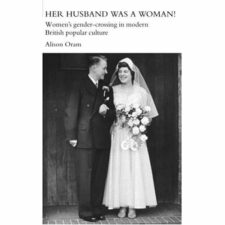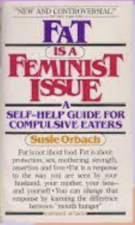From 7 October 2011 www.historytoherstory.org.uk, an online resource charting Yorkshire women’s lives 1100 to the present day, will be available free to researchers. West Yorkshire Archive Service and the University of Huddersfield are delighted to relaunch the updated History to Herstory website. Our partner institutions are The Bronte Parsonage Museum, Hull History Centre and Leeds City Council Libraries. Funding for this project has been provided by JISC , the UK’s leading expert on digital technologies for education and by the University of Huddersfield.
The pioneering website, originally created in 2002-3, has been re-developed and expanded to open up online access to over 80,000 documents and images from the archives. Improvement work began in May 2011 and has upgraded the catalogue database and its 80,000 images, created new learning materials for all ages and skill levels, and developed a brand new website to better store and present the resources. The University of Huddersfield will host and maintain the site into the future.
The archives included chart all manner of lifestyles and contain stories from all walks of life throughout the 800 years covered by the project. They include twelfth century land transfers and 1980s CND posters, Second World War recipe books and eighteenth century diaries reporting the events of the French Revolution. There are musical compositions and artistic sketches, labour certificates, marriage licenses, autobiographies, accounts and reports, school exercise books, suffragettes’ scrapbooks, letters to Prime Ministers, medical case notes, even an O.B.E. grant. Each document is digitised in full to facilitate primary research.
The resources have been themed to make browsing easier. A flavour of each:
Prominent Women
No doubt a major draw to the site will be the large collection of personal letters of the Brontë sisters. One example is Charlotte’s 1847 letter to her publishers Smith, Elder & Co. Writing on the eve of publication she hopes, ‘I am glad you think pretty well of the first part of “Jane Eyre” and I trust, both for your sakes and my own, that the public may think pretty well of it too’ .

Women’s Correspondence
Amy Johnson, the pioneering female aviator, who was the first woman to fly solo from England to Australia in 1930. In April 1928 Amy wrote of her joy of starting flying lessons, ‘Now for the good news – I’m going to learn flying! I’m joining the London Aeroplane Club and then I can get tuition and always use their aeroplanes’.

There are also letters from Mrs Phyllis Turner (nee Thornton) from 1913 to 1964, from when she was at school in France, written to her mother who lived in Huddersfield. Included are letters from her son, John, who served in the forces in North Africa and Italy. These give a valuable insight into the time period covering both World Wars from a woman’s perspective.
Women’s Diaries
Anne Lister, a remarkable nineteenth century landowner, business woman, intrepid traveller, mountaineer and lesbian, wrote four million words in the diaries that span her lifetime. Her diaries have recently been inscribed on the UNESCO UK Memory of the World Register and are digitised in full on the site. Mrs Mary Ann Crisp’s papers contain details of food ration books, rent books, funeral expenses, birth and death certificates, spanning the period of 1885 to 1971. These records give insight into the lifestyle and economic hardship that faced working class Yorkshire women during this time.
Women and Mental Health
A large amount of the archival material is in women’s own words; in their letters and diaries. One significant exception to this is the 30,000 case-note pages from the West Riding Pauper Lunatic Asylum (later known as Stanley Royd Hospital) in Wakefield. These detail the conditions, ascribed causes and treatments of the female patients in the asylum 1818-1900. Some male casebooks have also been included for comparison.
Women’s Groups and Associations
The Electrical Association for Women (c. 1960s-1986) contains leaflets and pamphlets about home wiring, fuses and appliances, plus minute books from committee and annual meetings. Florence White, from Bradford, founded the National Spinsters Pensions’ Association, which helped many women who, due to the large numbers of men who had died in the First World War, were unable to marry. Florence White gave a voice to single working-class women and campaigned that spinsters should receive 10 shillings a week from the age of 55.
Women and Politics
Edith Key was a suffragette and the secretary-organiser of the Huddersfield branch of the Women’s Social and Political Union (WSPU). She participated in suffrage demonstrations in London, resulting in her spending several days in Holloway Jail. Key provided shelter to a number of suffragettes who were avoiding the authorities, including Adela Pankhurst. She was also involved in the Adult School Movement and, along with her family, was opposed to the Boer War and the First World War. There are minute books of the WSPU from 1907 to 1909.
Women and Work
There are papers and photographs of Elsie Harling, a nurse and voluntary worker from Dalton, Huddersfield, who received a Family Planning Association training certificate. The papers include memoirs of her nursing career from when she trained as a State Registered Nurse at Huddersfield Royal Infirmary. Her fascinating memoirs include accounts of incidents on the wards, theatre work and Christmas in hospital.
Women and War
In 1983 Yorkshire women travelled to Greenham Common to join in the peace rally and blockade. On the History to Her Story website you can find records from The Campaign for Nuclear Disarmament Huddersfield Group, which includes leaflets such as ‘Nuclear War and You’, ‘H-Bomb on Huddersfield’ and ‘Kirklees and Nuclear Weapons.’
We hope that this material will provoke strong reactions and result in advances in the study of women’s history. Limited resources mean we cannot provide crowdsourcing facilities on the main site. However, we have created an image set on Flickr where we hope researchers will comment, and enhance the resources with their knowledge and impressions.
Katy Goodrum is the Head of Archives, West Yorkshire Archive Service.

